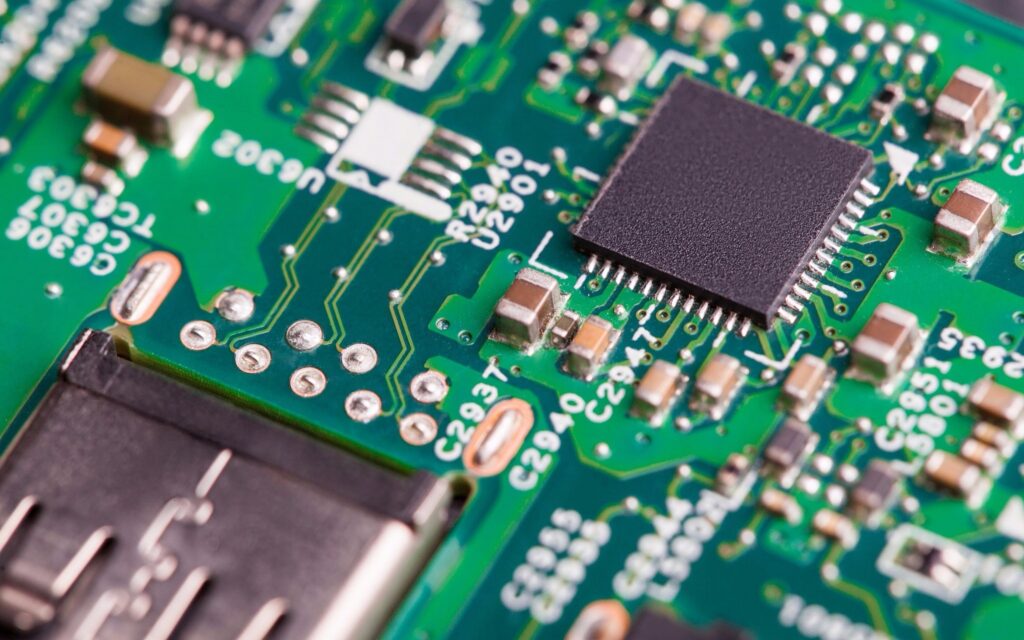Semiconductors are one of the major components of digital gadgets. These semiconductors have silicone and are important for designing integrated circuits. We also refer to them as microchips. Modern vehicles have ICs for entertainment systems, digital displays, and other complicated features.
Several appliances have semiconductor chips for communications, computing, and some other purposes. These chips have replaced the tubes found in old devices for a more efficient, cheaper, and faster solution. But, in 2020-2022, there is a shortage of global chips. So, what is chip shortage and how will technology solve it?

Know about global chip crisis
Any device for computing information needs a chip. Nowadays, the demand level for integrated chips has become higher than the supply level. That is why there is a global crisis of chips.
The increasing trend of IoT is one of the major reasons for this issue. At present, the USA has taken a leading position in developing semiconductors and selling them in the market. Some Asian countries also have taken part in processor chip production.
The chip shortage issue has affected almost every industry in this world. Modern consumers have also felt it, as they find delays in the delivery of appliances and gadgets. It has made these consumers impatient, as the tech industry has promised an AI-enabled future. But, there is a lack of hardware for manufacturing AI devices.
Cutting-edge mobiles, servers, and several other devices need chips of varying capacity and sizes. Thus, the shortage of chips has affected the manufacturing of these devices. Consumer products, including smartwatches and automated cars will also be affected.
Potential causes of the global chip crisis
During the pandemic, the automotive sector became the first victim of the chip crisis. In due course, it has resulted in global disruption. You can notice the effect of shortage by identifying the reduced sales of cars during the lockdown. It has compelled chipmakers to focus on other things like mobiles and computer parts because there is a trend of work-from-home.
Moreover, with the growth of cloud-based and 5G services, more chips have become essential for communication portals like Zoom. But, the major issue is that the ROI is not compelling to develop new products for automakers.
Lots of automakers canceled their orders during the pandemic, and then disgruntled vendors turned to some other markets for profits.
Chip crisis causing the production of fake components
What is the most concerning result of chip shortage? It has caused a rising need for counterfeit products. Several companies have faced distresses while buying the chips. They do not know that the market is selling some illegal parts.
Thus, these companies have to be careful while making deals with distributors. Most of them buy components online, and therefore, there is a chance of choosing counterfeits. Truly, it is not easy for them to identify the original components. Companies selling these components must undergo verification. In reality, some businesses do not have time to do it.
There is no on-demand production of semiconductors
It takes months to manufacture a batch of chips. Thus, chipmakers need to receive orders from different brands (like Apple) a number of months in advance. Scheduling the production slot is important.
However, semiconductor fabrication is costly, and it is not easy to maintain staff. From auto manufacturers to laptop manufacturers, everyone should coordinate with chipmakers to reserve chip manufacturing slots. These projections will be useful, as the demand for consumer products is much predictable.
How technology will solve the problem
The technology industry has already taken some initiatives to reduce the shortage. One of the major steps is an investment in the chip manufacturing infrastructure.
But, the supply chain disruption due to COVID-19 would prevent these manufacturing plants from working at a normal level. Companies should do something more to fill the short-term gap.
Another good approach of device manufacturers is to build new devices with the older chips. It will help in managing the shortage of chips.
Moreover, lots of modern consumers using billions of devices regularly would benefit from software solutions. It is easy to deploy software globally and help the industry to keep the promise of AR, AI cameras, and speech recognition.
While dealing with Machine Learning technology, compilation and smart compression will help in minimizing the download sizes. Moreover, to decrease the size of any working model, manufacturers have to focus on the necessary parts. Therefore, smart compression needs pruning, removal of layers and filters without affecting accuracy.
How would your business manage the global chip crisis?
Organizations have to detect the infrastructural elements, which would have a significant effect due to the failure of components. They could not replace these components because of the supply shortage.
So, organizations can look for alternatives to manage the problem. They have to encourage employees to stay productive by using personal devices. Moreover, they must make a cost-benefit analysis and stockpile the inventory at the right time.
Manufacturers relying on semiconductors can reduce the risk of global chip shortage in different ways-
·
They have to increase the supply chain visibility.
·
They need to team up with similar business entities to gain benefits.
·
Track the major indicators like capital investments. It is also essential to predict the revenue growth of the semiconductor industry.
·
Look for diverse suppliers and be strategic while creating partnerships with resellers, distributors, and traders.
Will the chip crisis end?
Analysts have made different forecasts about the global chip crisis. Some of them think that the crisis will continue up to 2023. They also predict that there will be an increased supply of older chip fabs. Several companies have a chance of increasing their capacity. Some manufacturers are reluctant to develop new plants.
But, Intel and a few other reputed companies have thought of investing in building new manufacturing units and designing new chips. These initiatives indicate that there will be a solution to the problem in the coming years. Still, your business can take alternative steps to deal with the chip shortage issue.

